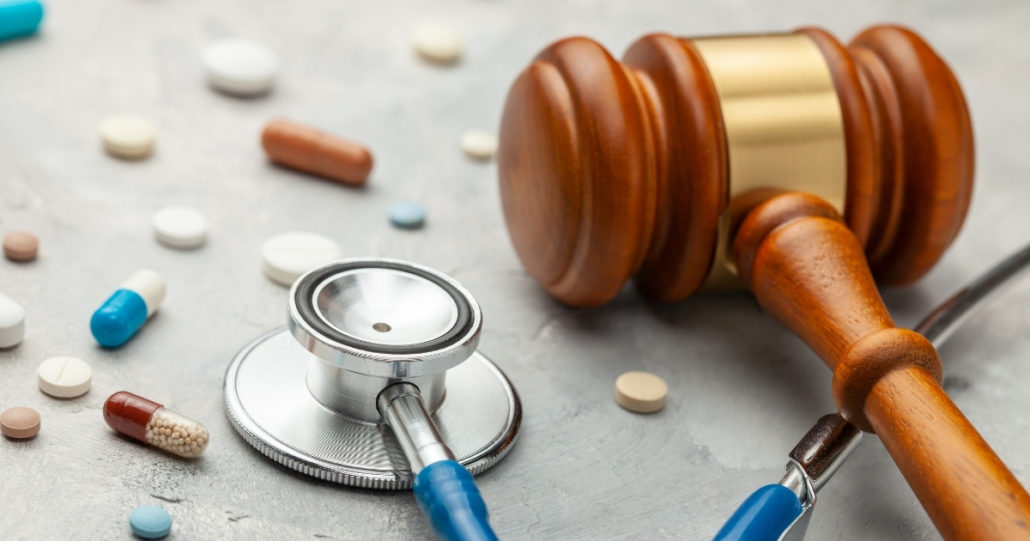In medical negligence in order to be successful in your claim, you must prove with evidence that the defendant owed you a duty of care, breached that duty of care, and as a result of that breach caused you injury, loss, and/or damage.
If you are successful in establishing a breach you will be entitled to compensation for your injury, loss, and/or damage.
The compensation you receive is assessed under heads of damages.
The four (4) most common heads of damages are: -
Damages Explained
General Damages/Non-Economic Loss
General Damages: In QLD, general damages are calculate on an “injury scale value” (ISV) as per the Civil Liability Act 2003 QLD.
The ISV scale ranges from 1 – 100 with 100 representing the most severe damage.
The ISV that you are assessed at is entirely dependent on the injuries you have sustained.
General damages are payable on a scale up to the maximum of $398,700 which is reserved for the most serious of injuries.
Your ISV must be assessed by an expert which your lawyer will arrange for you.
Non-Economic Loss (NSW): In effect, non-economic loss represent a pain and suffering as a percentage of a most extreme case (MEC).
Non-economic loss is only payable for injuries of at least 15% of a most extreme case as per the Civil Liability Act 2002 (NSW).
Ultimately, the compensation you are entitled to receive depends on the individual needs and circumstances of your case and will take into consideration elements such as; your suffering, the extent of your injuries, disabilities, and damage, your future prospects, and generally the impact your injuries have on your quality of life.
Economic Loss
If as a result of your injuries you have had to take time off work, reduce your work capacity or ceased work in its entirety, you can claim compensation for your loss.
Your economic loss claim can be made in relation to your past and expected future economic loss including the associated loss of superannuation.
All claims for past economic loss must be supported with evidence such as, payslips, tax returns and medical certificates.
Claims for future economic loss must be supported by expert evidence setting out the nature and extent of your injuries and disabilities and the impact they have on your future employment. Your lawyer will arrange for you to be assessed for economic loss.
Medical Treatment and Out-of-Pocket Expenses
These damages include any treatment or expenses you have incurred in the past as a result of your medical negligence injuries. Past treatment and out of pocket are expenses are only claimable with evidence. Therefore, it is important you keep all receipts so you may recover your expenses.
Tip!
Damages are also payable for your future medical treatment for the remainder of your life. Your claim for future treatment will be based on expert opinion. Your lawyer will arrange for you to be assessed for your future medical treatment needs.
Medical Treatment and Out-of-Pocket Expenses
If as a consequence of your injuries you require care and assistance undertaking your usual daily duties, domestic tasks, or self-care and personal hygiene needs you may be entitled to claim damages for care and assistance.
Care and assistance is compensable on both a gratuitous (provided by friends and family) and commercial (paid) basis.
In order to claim damages on a gratuitous basis, a friend of family member must be providing care and assistance for a minimum of six (6) hours per week for a minimum of six (6) months.
All claims for gratuitous care and assistance must be supported by evidence. The type of evidence required to support your gratuitous care and assistance claim could be; a calendar showing rotations/shifts of family and friends providing assistance, a schedule of care and assistance, or a statement by the person providing that gratuitous care and assistance.
Claims for paid care and assistance in the past must be supported with evidence such as receipts for payments for services. If you are paying for care and assistance, make sure you keep your receipts in a safe place so you can provide them to your lawyer to support your claim.
All future paid care and assistance will need to be supported with expert evidence detailing your injuries, associated symptoms, and restrictions, and how they affect your day to day life.
Usually your lawyer will arrange for an assessment by an Occupational Therapist (OT) to discuss your ongoing care and assistance needs.
KEY TAKEAWAYS
To learn more about damages in medical negligence claims, see our book on calculating damages here:
One download between you and your key to compensation...
Want to fast track the process with our free interactive workbook?
If you are not sure whether to bring a medical negligence claim and wish to know what damages you would may be entitled to you should contact Medical Law for a free case assessment.
Medical Law © 2020 Privacy & Disclaimer




